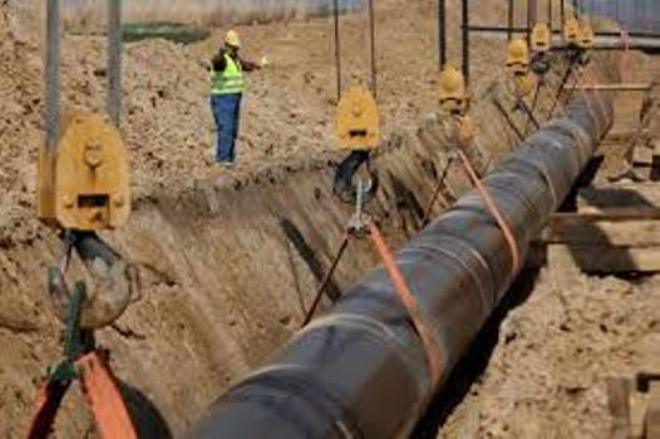The Reporter
Wednesday December 6, 2017
The Ethiopian government canceled the planned Ethio-Djibouti fuel pipeline project, reports the Ethiopian weekly English newspaper, the Reporter.
In 2014 the South Africa-based infrastructure investment group, Black Rhino, proposed to the Ethiopian government to build a 550km long pipeline to transport diesel, gasoline and jet fuel from the Port of Djibouti to central Ethiopia.
“We have built a new railway line to Djibouti with an investment cost of four billion dollars. And 100 fuel tanker wagons are ready to transport fuel from Djibouti. We have to maximize the use of the railway and pay back the loan to the Export Import (EXIM) Bank of China first,” the Ethiopian official said.
The project is estimated to cost 1.5 billion dollars. The Ethiopian government had reviewed and accepted the proposal in principle. Backed by the US investment group Black Stone, Black Rhino has undertaken a feasibility study on the project, which was going to be the first fuel pipeline in Ethiopia.
He said that while the country has a newly-built railway line, the construction of another expensive infrastructure cannot be justified. The International Finance Corporation (IFC) – the investment arm of the World Bank – had expressed interest in financing the planned Ethiopia-Djibouti fuel pipeline project.
“It is not that the project is unable to secure loan but while we are having the railway line in place building another fuel transport infrastructure is not economically a sound decision,” the Ministry of Transport official said. However, he said the construction of the pipeline can be considered after four or five years.
Ethiopia’s annual fuel import, which is growing at a rate of ten percent, has reached 3.8 million MT. The country so far uses tanker trucks to transport the fuel from the Port of Djibouti to central Ethiopia costing the country dearly. Fuel theft, adulteration and waste are also other challenges with the road transport.
The governments of Ethiopia and Djibouti signed a framework agreement on the planned pipeline construction in 2015.